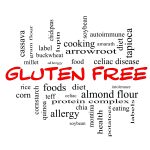What controls our appetite?
What hormones control our appetite?
Much recent research is showing that appetite is a complicated process under control of several hormones. Finding out if you are low in certain hormones which contribute to overeating is going to be an obesity treatment of the near future. So here is quick lesson in which hormones contribute to our appetite and feeling of fullness…

Appetite and satiety are controlled by the hypothalamus in the brain in an area called the Satiety Centre. Various hormones work through the hypothalamus to control appetite – here are the main ones:
1) The breakdown of ingested fat sends messages to the brain to switch off appetite using the hormone leptin.
2) Gut hormones like glucagon, PYY and GLP1 switch off appetite after eating
3) Ghrelin, another gut hormone in the stomach, turns on appetite when our stomach is empty
So the regulation of appetite and satiety is complex. It is also seated near the centre of our emotions, where eating and comfort are closely linked. But new research shows that ‘appetite control’ cells in the satiety centre are affected by eating bad foods. For example, eating sugar changes the blood flow to the hypothalamus.
Leptin
It seems that obese people have high levels of the hormone leptin which switches off appetite but that their brains are resistant to it. Leptin is made by the fat cells and also is made when we eat fat. It may be that sugar is involved in this leptin resistance by damaging the cells in the hypothalamus which normally would respond to leptin. By increasing healthy fats, vitamins and minerals, and cutting out sugar this may allow satiety centre cells to recover and become more sensitive to leptin.
We make more leptin when we digest fat and oils, so eating more healthy oils such as flaxseed and coconut oil help to suppress appetite.
PYY and GLP1
These are hormones made in the gut. Their levels rise within 15 minutes of eating food, peak at 90 minutes and stay elevated for 6 hours. The level of the hormones corresponds to the amount of calories ingested, so the more you eat the higher the levels. A high fat diet increases production of these hormones. It leads to a sense of fullness and satiety and delays emptying of the stomach. Many obese people have low levels of these hormones.
Sugar and appetite
Glucose is our quick energy source and is stored in the liver. When we eat carbs they are broken down into simple sugars like glucose and then stored as glycogen. The advantage of glycogen is that it can be quickly converted back to glucose when we need energy quickly. When our glycogen stores are full we then convert the extra glucose to fat. The fat cells are long term fat stores – they are broken down slowly to produce energy over a long period of time – like a long cold winter. This is why fat loss needs to be a slow process over weeks rather than a crash diet. Our bodies are not designed to break down fat quickly.
When we eat sugar it stimulates release of hormones to process it. Insulin and glucagon are two hormones which act against each other to maintain the balance of blood sugar like balancing scales.
Glucagon is released when your blood sugar levels are low, stimulating the release of glucose from your body stores. Insulin is released when you have just eaten a meal and the level of glucose in your bloodstream is high. Insulin works by stimulating the cells within your body to take up the glucose from your blood, either for immediate energy or for storing as glycogen in your liver and muscle cells.

So when we eat sugar the blood glucose goes up, then insulin is increased to deal with it. Within 1-2 hours the blood glucose falls, we make glucagon and feel hungry again – like after eating white rice, we feel hungry quite quickly. Then we eat and then the blood glucose goes up again. Over the day, the blood sugar see-saws creating an endless appetite, especially for carbs.
Other Hormones
Oestrogens help to decide body fat distribution. Oestrogens are sex hormones made at highest amounts by the ovaries. In men and postmenopausal women, the main site of oestrogen production becomes the fat stores. While women of childbearing age tend to store fat in the lower body (‘pear-shaped’), older men and postmenopausal women tend to increase storage of fat around the abdomen (‘apple-shaped’).
On the other hand, toxic chemicals which act like oestrogens (called xeno-oestrogens) also promote obesity. Oestrogen is stored in fat and research indicates that obesity itself is associated with high blood levels of oestrogen. So the situation is a lot more complex than just oestrogen deficiency.
There is no evidence that replacing hormones alone will have much effect on weight loss. In other words, there is no magic hormone for weight loss. A few studies have linked human growth hormone with weight loss but the effects seem to be minimal.
A simple solution?

To summarise, appetite and overeating is a complex business. Much research at the moment is aimed at developing leptin, PYY and GLP1 as drugs to control appetite and therefore obesity. However there are drawbacks such as nausea and although they work with a meal, they don’t seem to reduce overall daily intake of calories long term. Perhaps the solution is much simpler – give up the sugar and take small amounts of healthy oils with each meal to promote fullness and satisfaction.

